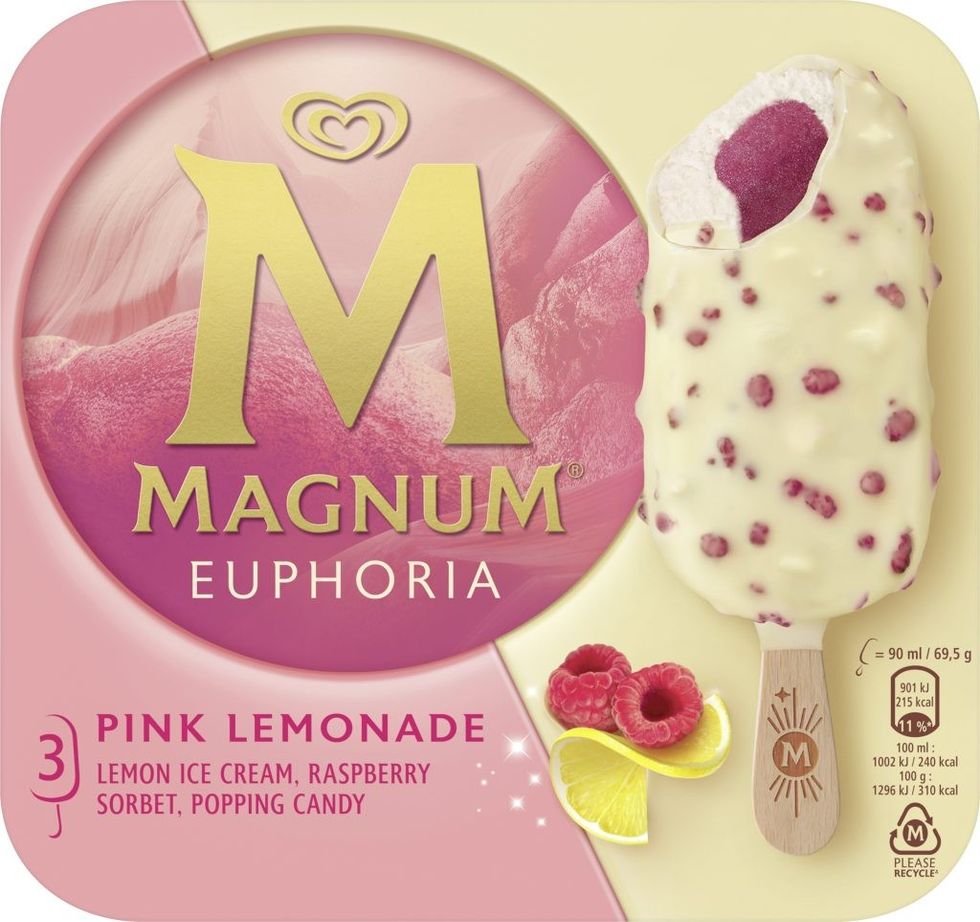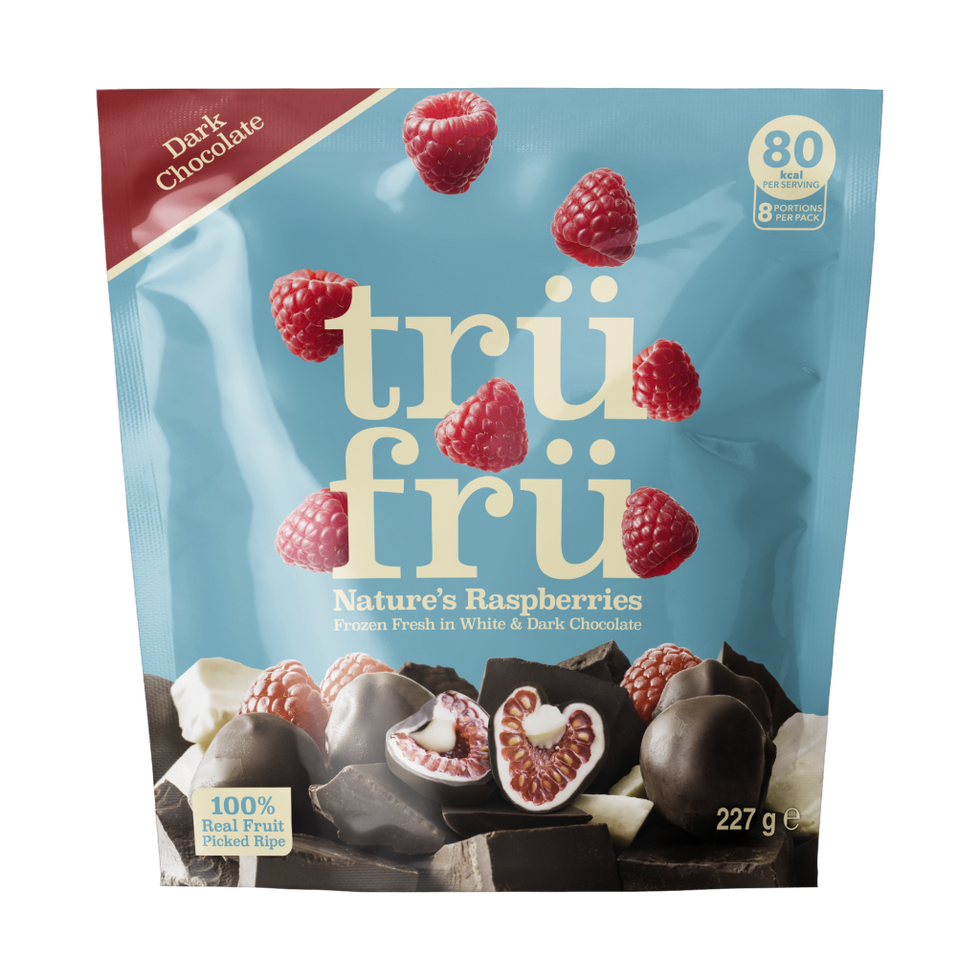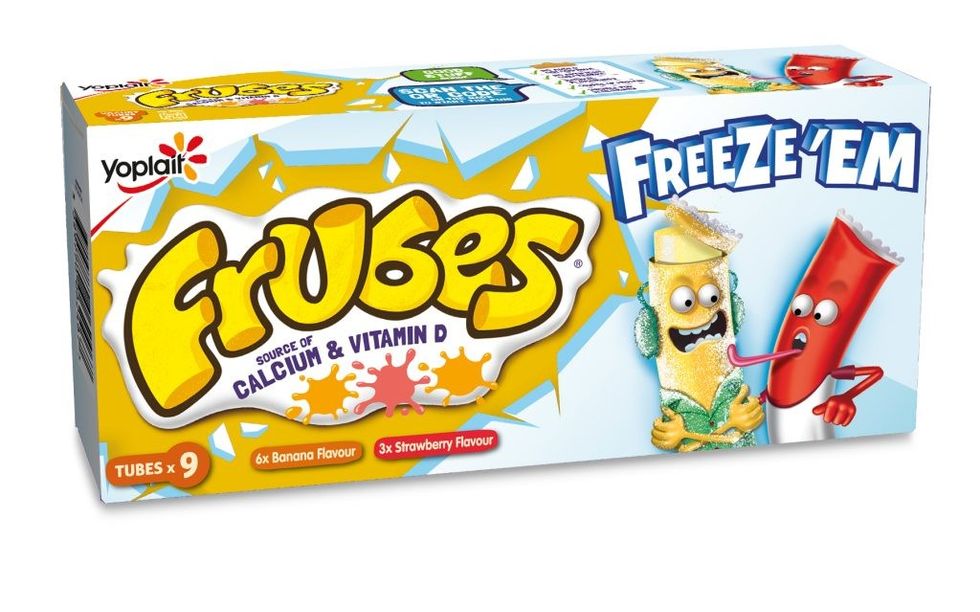It’s true that summer means ice cream, but with a wealth of great NPD and flavours, the sector is looking to make indulgence a year-round thing
Last year, ahead of National Ice Cream Day (yes, it exists), a certain UK supermarket released some figures revealing key and ongoing ice cream trends. Classic flavours such as vanilla, chocolate and mint chocolate chip were still the best-loved flavours, with “sundaes at home” and “salted caramel” as absolutely a la mode.
According to research it had carried out, the nation displayed a continued liking for classic flavours, with vanilla (42 per cent), chocolate (32 per cent) and mint chocolate chip (29 per cent) taking the top spots. On the other hand, once-beloved flavours (or combinations) like Neapolitan seemed to have lost their charm and remained the ice cream of choice for only 11 per cent of the nation.
When enjoying ice cream at home, nearly half (45 per cent) of ice cream enthusiasts preferred to savour the treat in a bowl, while just over a quarter (29 per cent) opted for the classic cone. Surprisingly, one in four people (25 per cent) admit to indulging in their ice cream straight from the tub, embracing a casual and carefree approach.
Nevertheless, the filled-cone category is growing 7.6 per cent, and Cornetto Soft is outperforming the category at 38 per cent value and 26.5 per cent volume growth throughout 2023, according to Rhiannon Lines, Wall’s Handheld Marketing Manager at Unilever.
Reflecting ever-evolving ice cream trends, Gen Z exhibits somewhat more adventurous preferences. One in ten (11 per cent) of 18–24-year-olds now favour ice cream sandwiches, whilst eight per cent delight in the chewy texture of mochi as their preferred ice cream treat.
“Ice creams are becoming increasingly adventurous, giving rise to new and exciting flavour combinations and innovative textural inclusions. This trend has seen the rise of indulgently nostalgic cookie dough in ice cream,” said Jaimini Sharma, Product Development Manager at Tesco plc.

It is true that summer presents a great opportunity for retailers to offset lower sales in other seasons, as although ice cream is enjoyed throughout the year, it is particularly popular during the warmer months. In time, perhaps the UK could adopt the Swedish consumers’ practice of eating more ice cream the colder it gets – and indeed, the industry impetus is currently in the direction of what is called “de-seasonality” and more year-round consumption of ice cream (see below)
The UK ice cream market was valued at £2.46 billion in 2021 and is expected to grow at a compound annual growth rate (CAGR) of over four per cent between 2021 and 2026, according to GlobalData.
“The UK ice cream market tops value sales at £3.4 billion, with wrapped handheld ice cream being the most prominent segment, valued at £1.8 billion,” says Michelle Frost, general manager at Mars Chocolate Drinks & Treats (MCD&T). “Within convenience and convenience multiples, ice cream sales are currently worth £782.2 million, with handheld multipacks also proving to be a successful segment, with sales worth £378 million.”
Nearly 80 million single ice creams were purchased in retail stores in 2022, contributing an estimated value of £120 million to the sector, so ice cream is the second most impulsive purchase after confectionery and should be taken seriously by retailers who wish to up their margins in the holiday season.
Ice cream holds the largest share within the frozen category, accounting for 23.3 per cent. The key categories in the segment include take-home and bulk ice cream, impulse ice cream (single serve), and artisanal ice cream.
Single serves
Wall’s is filling freezers across the UK with new launches of Twister Berry-licious, Cornetto Soft Stracciatella and Caramel, and three new GUUUD Greek Style Yoghurt Ice Cream flavours: Raspberry, Salted Caramel and Passionfruit. (Yogurt ice cream might well be the Next Big Thing.)
Twister has released Twister Berry-licious – the first ice cream in the market with the interesting boast that it naturally colour tongues blue. Made with real fruit juice and no artificial flavours or colours, and at only 68 calories per stick, it is HFSS-compliant and carries Unilever’s Responsibly Made for Kids logo (4 x 70ml multipack, RRP £2.50 and single70ml, RRP £1.40).
“Family favourite Twister is known for its iconic shape and innovative flavour combinations. It is ideal for parents and care givers who want to buy tasty, guilt-free ice creams for kids to enjoy as a treat. Ice cream is all about fun and taste, and what can be more enjoyable than a delicious ice cream that can turn tongues blue – naturally. We’re proud to be able to bring this innovation to the category and expect Twister Berry-licious to get tongues wagging across the country” says Rhiannon Lines.
Meanwhile Cornetto has added another variant to its successful Soft range with Stracciatella and Caramel (4 x 140ml multipack, RRP £3.75). They feature stracciatella and caramel toppings and sauce, and a brand-new crunchy Cocoa wafer cone – a first for the brand.
“Cornetto Soft was designed to enable people to enjoy the world of soft ice cream at home. This indulgent new Cornetto Soft recipe offers a convenient way for consumers to treat themselves and is perfect for the growing sofa snacking occasion,” explained Lines.
To cater for shoppers who appear to be seeking healthier choices across the desserts category, Greek-style yoghurt ice cream GUUUD, is launching three new flavours – an indulgent salted caramel, a sweet and sour passionfruit and a fruity raspberry, all of which treats come in at only 68 calories per stick and all HFSS-compliant (70ml – RRP £1.80, 3 x 70ml multipack – RRP £3.00).
“Innovation is one of the key drivers in the category, and as a leader in ice cream we continue to push the boundaries. GUUUD is a key player in our strategy to de-seasonalise ice cream. Through the brand, we’re creating new all-year-round occasions for ice cream as it offers the perfect alternative to a traditional yoghurt. Whether it’s enjoyed on-the-go, as an afternoon snack or as part of an indulgent moment on the sofa after dinner, GUUUD is designed to unlock new opportunities for frozen treats.”
The Magnum brand, meanwhile, recently unveiled its latest duo innovation – Magnum Euphoria Pink Lemonade and Magnum Chill Blueberry Cookie, offering a multi-sensory experience as it introduces Magnum’s first ever sorbet and ice cream combination. The new flavour combinations are based on the two distinct moods consumers can experience when eating ice cream. For Euphoria the inspiration comes from the emotional state of extreme happiness, while Chill is inspired by the feeling experienced during an emotional state of relaxation. Consumers can choose the flavour that best suits their mood.
Euphoria Pink Lemonade consists of a raspberry sorbet core, wrapped in citrusy lemon ice cream with popping candy and provides consumers with complementary and intense flavour profiles. Magnum Euphoria Pink Lemonade is also being launched in a Magnum Mini format (RRPs: Single £2.20, 3x Multipack £3.99, 6x Multipack Mini £4.50).
Magnum Chill Blueberry Cookie provides a smooth blueberry sorbet core encased in vanilla biscuit flavour ice cream and crunchy cookie pieces. Chill is a vegan ice cream which provides delicious innovation in flavour and also supports Unilever’s sustainability targets through growing plant-based sales (RRP£2.20, 3x Multipack £3.99).
The new SKUs from Magnum follow a successful year for Magnum innovation in 2023 with both Magnum Sunlover and Starchaser ranking as the number one and number two ice cream NPD respectively.
“After two years in the making, we are thrilled to introduce our revolutionary mood-inspired range that offers a multi-sensory ice cream experience thanks to our surprising sorbet core, a Magnum first,” said Daniel Lythgo, Brand Manager Magnum UK at Unilever.
Mars Chocolate Drinks and Treats (MCD&T) last year launched Twix Ice Creams Cones, the first time that this popular confectionery brand has been developed into an ice cream cone format.
Across the overall ice cream market (with the filled-cone category in 7.6 per cent growth), Mars Ice Cream grew by £11.5m in 2022, equating to a 42 per cent share of the total ice cream market growth. Over the last five years, Mars has delivered more than six times the growth of the category average and more than any other manufacturer.
Michelle Frost, General Manager at MCD&T says: “The brand familiarity and price point of Mars products have really allowed us to solidify our mid-market position, and for some of our core brands, the appetite for our classic products has still increased by a third. Developing the Twix brand into an ice cream cone format was a natural progression to give fans of the brands an alternative format to enjoy.”
Frozone!
In addition to Unilever’s bet on yogurt ice cream, over at World of Sweets, Partner Brand Manager Chris Smith says that Freezables are a big trend. They offer retailers a low-cost summer product which customers will grab and purchase to cool down on a warm day. These can be purchased by customers in a multiple pack which they can freeze at home, or one already frozen and ready to enjoy in-store.
“The range of freezable products is growing every year with some exciting flavours from big brands having launched in time for this summer,” says Smith. “For independents it’s about offering low cost, value treats and offering their customers the freezable and ice-cream products they know they’ll enjoy. Offering a varied range of recognisable brands and innovative products is really important to encourage repeat customers.”
World of Sweets have launched new products from PAW Patrol and Warheads which will join the popular Barratt range and existing Warheads freezable products.
“PAW Patrol is the number one preschool brand in the UK, it’s watched by over 350 million households across more than 170 territories and in more than 35 languages,” says Smith. “Its confectionery treats are also popular among younger consumers with fruity flavours and smaller portion sizes.”
New for 2024 are PAW Patrol Freeze Pops in Cola, Raspberry, Tutti Frutti and Watermelon with no artificial flavours and colours. These are available as multipacks. The freeze pops are HFSS compliant meaning they can be stocked as an impulse purchase at the till point.
Barratt Ice Duos were launched in 2022 and were the only ice lolly commended in the Ice Cream and Ice Lolly category at the Quality Food Awards 2022. The multipacks include either Fruit Salad & Dip Dab Ice Duos or Refreshers & Wham Ice Duos. Brightly coloured branding with eye-catching design ensures they stand out on shelf.
“The ice poles can also be purchased by consumers as singles. They’re available in classic sweet shop flavours Fruit Salad, which is raspberry and pineapple flavour and Wham, in sour raspberry flavour. Additionally, they’re suitable for vegans and have no artificial colours and flavours,” adds Smith.
“Freezables from US confectionery brand Warheads are a popular choice for retailers and their customers with the sour flavours and eye-catching branding.”
The Warheads Snap-Ice, launched in 2023, is a two-in-one freezable which sold exceptionally well last summer. Extreme sour fruit flavours include green apple, watermelon, black cherry and blue raspberry.
Carrie Martin, General Manager for Kind at Mars, recommends another kind of freezable: the award-winning US frozen-snack brand, trüfrü which launched into the UK market in March. The brand, which first launched in the US in 2017, has since reached $215M RSV (Nielsen), completely changing the game in the US frozen snacking category. It was acquired by Mars in Q1 2023for its better-for-you snacking portfolio.
Martin says that the launch of trüfrü is timely: with the ice cream category continuing to evolve, bitesize and permissible formats are in rapid growth and the trend for frozen snacking continues to grow. “trüfrü tastes like real indulgence and fulfils a permissible need that we know consumers are looking for in the frozen category,” she continued. “We are excited to be able to bring innovative snacking solutions at pace from the US to UK consumers, in a way that nurtures this fantastic founder-led brand with the scale and capabilities of Mars.”
Combining the yogurt trend and the freezables trend is Frubes, which launched in their frozen form last summer, “We are the only yoghurt brand in a tube and the only one to offer the versatility of being able to freeze,” said Ewa Moxham, Head of Marketing at Yoplait UK. “We are confident that kids are going to love having one of their favourite snacks in a frozen format, especially as the weather starts to warm up. This is also a great way of minimising food waste and making our product last longer.”
Chupa Chups also introduced a frozen version of their brand favourites with Chupa Chups Eezy Freezzy Squeezee Ice Pops in four flavours: Cola, Apple, Strawberry and Orange. They are conveniently packed into an ambient bag format – to be stored ambiently and frozen when required. The assorted bag of 12 x 45ml freeze pops are available from Booker or directly from Rose Marketing UK Ltd. The freeze pops are made with real fruit juice, natural flavours and no artificial colours and they are suitable for gluten free, vegetarian, vegan and halal diets.
Complementing them is the natural-flavoured Strawberry Chupa Chups Eezy Freezzy Triangles, which, as they are a little bigger than the squeezee pops, are perfect for slightly larger appetites. There are eight 62ml triangles per pack and can be found in the main grocery fixture to buy ready to freeze at home. The Strawberry Chupa Chups Eezy Freezzy Triangles are also suitable for vegans.
Relax in an ice-cold tub
When it comes to tubs, Ben & Jerry’s has expanded its Sundaes range with two indulgent SKUs inspired by an iconic American dessert, the “S’more”. Both Marshmallow & S’more and a non-dairy NPD, Oat of this Swirled, feature the S’more’s star ingredient, toasted marshmallow – a top ingredient, according to recent CMI consumer research.
The tub of rich chocolate ice cream is jam packed with chocolate cookie dough chunks and gooey marshmallow swirls, topped with a creamy whipped ice cream, toasted marshmallow caramel swirls and popping candy traceably sourced Open Chain chocolate. The new flavour offers a complete dessert solution and drives consumer trade upwards with uber-indulgence.
“Both brand-new S’mores-inspired ice cream flavours and are fully loaded with cookie chunks, toasted marshmallow-y swirls, topped with a soft whipped top that Ben & Jerry’s Sundae flavours are famous for, and finished off with traceably sourced Open Chain chocolatey chunks – providing more indulgence in every spoonful,” says Flo Howell, Country Business Lead at Ben & Jerry’s UK.
Oat of this Swirled Sundae is the first Non-Dairy ice cream flavour purposefully created with Ben & Jerry’s new oat-base recipe. The burnt sugar Non-Dairy ice cream is loaded with oat cinnamon cookies and toasty marshmallow-y caramel swirls, topped off with a soft whipped top and Open Chain chocolatey chunks.
“Out of this Swirled will be our first flavour made with the new oat-based formula, allowing our ever-popular Sundaes range even more inclusive for our non-dairy fans,” says Howell. “We’re also excited to introduce Spectacu-love. We know our fans love cookies nestled into their tub of Ben & Jerry’s as Cookie Dough continues to be our number one best seller, driving sales for grocery and convenience. Therefore, we wanted to bring our fans even more cookie-filled options. Spectacu-love will join our core collection of cookie-filled flavors. If you ask us, there’s s’more to love in 2024!”
Spectacu-love is a “decadent” addition to its core collection. Inspired by market insight that demonstrates a popular consumer trend of speculoos cookie, the fully loaded tub is jam packed with chunks of crunchy, golden speculoos cookies, nestled into sweet cream ice cream with swirls of complimentary smooth caramelized cookies.
The tub is loaded full of chunks of crunchy, golden speculoos cookies, nestled into sweet cream ice cream with swirls of complimentary smooth caramelised cookies, harnessing the popularity of the speculoos cookie. According to recent CMI research, when faced with a choice between flavours, sweet cream continues to prevail with shoppers in terms of appeal, and 84 per cent of Ben & Jerry’s fans regard the new flavour as new and different.












